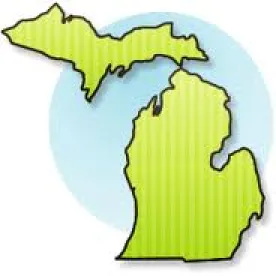The Indian Child Welfare Act (ICWA) is a federal law that applies to the removal of Native American (Indian) children from their families in adoption, foster care and custody cases. ICWA was enacted in 1978 to address the disproportionately high rate of forced removal of Indian children from their traditional homes and, effectively, from Indian cultures.
Before 1978, between 25 and 35 percent of all Indian children were forcibly removed from intact families (with extended family networks) and placed, typically, in non-Indian homes which had no relation to Indian cultures. Both during and after the legislative process, Congress recognized that four primary factors contributed to the high rates of Indian child removal by states, including: (1) a lack of culturally competent State child-welfare standards for assessing the fitness of Indian families, (2) systematic due-process violations against both Indian children and their parents during child-custody cases, (3) economic incentives favoring removal of Indian children from their families and communities; and (4) social conditions existing in Indian country. Congress' clear intent in passing ICWA was to protect Native American culture and tribal integrity from the unnecessary removal of Indian children by state and federal agencies. Congress reasoned "there is no resource that is more vital to the continued existence and integrity of Indian tribes than their children."
ICWA established minimum Federal standards for most Indian child custody proceedings, including removal and foster care placement of Indian children, voluntary and involuntary termination of parental rights, and adoption. It excludes divorce and child delinquency proceedings. ICWA give important jurisdiction powers to Indian tribes in order to preserve Indian culture and tribal future. Tribal courts maintain either exclusive or concurrent jurisdiction depending on certain factors.
A core mechanism for meeting ICWA's goals is the requirement that active efforts are made with the Indian family to rehabilitate the underlying cause of problems before child removal proceedings begin. Further, if an Indian child is being removed from his/her family, active efforts must be made to ensure the child is placed with extended family, other tribal members, or other Indians committed to ensuring the child's exposure and involvement in his/her tribal culture, as set forth in ICWA's delineated order of placement preference.
Michigan Indian Family Preservation Act
Because ICWA was not consistently implemented across the State, the Michigan legislature enacted the Michigan Indian Family Preservation Act (MIFPA) in 2012. MIFPA was not intended to replace ICWA in Michigan. Instead, MIFPA is intended to codify IWCA into Michigan law and provide clarification of certain ICWA provisions to ensure consistent state-wide implementation of the ICWA/MIFPA provisions, and to provide a direct link to state child welfare professionals. Both statutes apply to Indian children in Michigan.
Examples of differences between ICWA and MIFPA include MIFPA's elimination of the requirement that an Indian child be the biological child of a tribal member, MIFPA's expanded application to guardianship proceedings under the Juvenile Code and the Estates and Protected Individuals Code, permitting participation in any proceedings by an official tribal representative and, significantly, a more specific definition of the "active efforts" that must occur before an Indian child is removed from his/her family.
Legal Challenges
ICWA has repeatedly been the subject of unsuccessful legal challenges, typically based on constitutional law issues. Such a challenge currently exists. In October 2018, a federal district court in Texas ruled ICWA unconstitutional on the basis that, among other reasons, it mandates racial preference. In August 2019, three judges on the federal court of appeals for the fifth circuit overruled the Texas district judge. Then, on November 9, 2019, the fifth circuit voted to rehear the case en banc, meaning all 16 of the fifth circuit court judges would hear the case, which occurred in January 2020. No decision has been made by the fifth circuit court. It is widely anticipated that, when issued, the court's decision will be challenged to the U.S. Supreme Court. In the meantime, ICWA and MIFPA remain fully enforceable.



 />i
/>i

